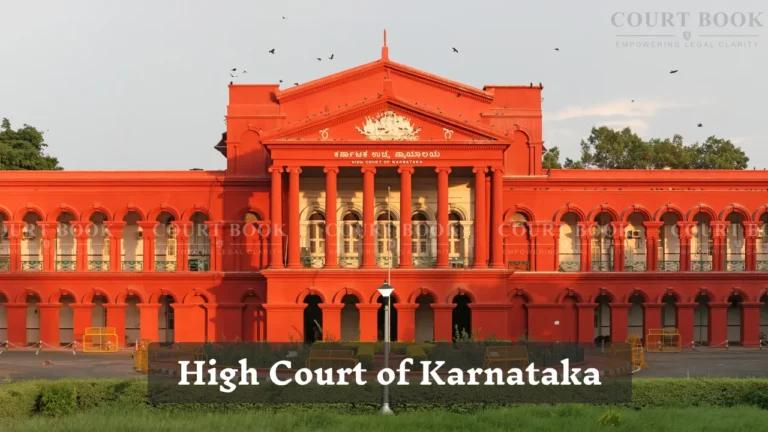The Karnataka High Court has affirmed a single judge’s order that had quashed the cancellation of an appointment offered to a man selected as a peon in the Judicial Department of Kolar District. The court ruled that a conviction for a petty offence alone is not a valid ground to cancel a government job offer, especially when the offence does not involve moral turpitude.
A division bench comprising Chief Justice Vibhu Bakhru and Justice C M Joshi dismissed the appeal filed by the Chief Administrative Officer and the Principal District and Sessions Judge, Kolar. The appeal challenged the order dated January 10, 2025, passed in a writ petition filed by the respondent Mallappa Basappa Sajjan.
Read Also:-Tamil Nadu Govt Must Pay ₹25 Lakh More to Family of Man Killed in Police Custody: Madras HC
"We concur with the view of the learned Single Judge that conviction for a petty offence would not be a ground for cancelling the offer of appointment," the bench stated.
The case arose from a notification issued on November 11, 2011, by the Sessions Court at Kolar, inviting applications for multiple posts including fifteen peon vacancies. Mallappa Basappa Sajjan applied within the stipulated time, was interviewed in November 2016, and selected under a reserved category. His caste and income certificates were forwarded for verification, and a background check was also initiated with the Superintendent of Police, Vijayapura.
Following the police report, it was found that the respondent had been convicted under Section 87 of the Karnataka Police Act 1963, for gaming in public streets. He had paid a fine of ₹300 before the JMFC Court of Muddebihal in December 2013.
Read Also:-Excess Pension Paid Due to Service Shortage Must Be Returned, Rules Madras HC
Based on this, his selection was cancelled through a communication dated September 20, 2018. The respondent, however, filed a representation on November 2, 2018, stating that he was merely present at the spot out of curiosity and had no active involvement in the incident.
Despite the representation, the cancellation stood, leading to the writ petition. The single judge allowed the petition and noted that the offence under Section 87 of the KP Act was non-cognizable and did not involve moral turpitude. It was further observed that gaming itself was not criminalised, and only gaming in public places was punishable.
The court also highlighted that the conviction occurred on December 28, 2013—after the application was submitted. Thus, there was no concealment of material facts at the time of application. The appellate court noted this too.
There is no material on record to support the contention that the respondent’s appointment was cancelled on account of non-disclosure of his conviction, the court clarified.
It was further argued by the appellants that under Rule 10 of the Karnataka Civil Services (General Recruitment) Rules, 1977, a candidate must be of good character. The court, however, found no grounds to declare that the respondent lacked the required character solely based on a petty offence.
Read Also:-Madras High Court: ED Cannot Act Without Predicate Offence or Proceeds of Crime
Referring to precedents, including Avtar Singh vs Union of India (2016) 8 SCC 471 and T.S. Vasudevan Nair vs Vikram Sarabhai Space Centre, the bench observed that for minor posts such as that of a peon, the standards should be more relaxed compared to sensitive or higher posts.
"In a case trivial in nature in which conviction had been recorded, such as shouting slogans at young age or for a petty offence, the employer may, in its discretion, ignore such suppression of fact," the court quoted from the Avtar Singh judgment.
The High Court also stressed that suppressing minor details does not necessarily warrant cancellation unless the information is material and relevant to the appointment.
We are not persuaded to accept that the order dated 20.09.2018 can be sustained on the ground that the respondent had furnished inaccurate particulars, the bench concluded.
The appeal was ultimately dismissed, and the original order reinstating the respondent’s appointment stood confirmed.
Appearance: Senior Advocate Sriranha for Advocate Sumana Naganand.
Advocate Tumbigi Prabhugouda Basavantarayagouda for R1.
Case Title: Chief Administrative Officer & ANR AND Mallappa Basappa Sajjan
Case No: WRIT APPEAL NO. 860 OF 2025















